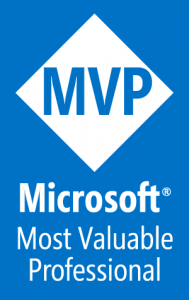Part 1: Blockchain – Hype or the Next Internet?
Part 2: Blockchain – Hype or the Next Internet? Part 2
Part 3: Blockchain – Hype or the Next Internet? Part 3
In previous posts (Intro, Part 2), I shared my “>Blockchain 101 overview and started to introduce blockchain sans-Bitcoin as a concept of Enterprise Blockchain. If you have not had the chance to review those posts, I suggest you glance over the material to get you caught up.
Microsoft and the Coco framework
Through my previous posts, we starting to get deep into the woods of enterprise blockchain. Let’s now start backing ourselves out of the trees and return to a higher plane. At this point, we’ve looked at blockchain’s basic mechanics and even discussed some possible use cases. The details, mathematics, and coding ability can quickly take blockchain out of reach for many of us.
What I want to shine a spotlight on at this time is that Microsoft is already heavily involved with blockchain. The Microsoft Azure team and Microsoft Research have been working with blockchain for enterprise, and they’re already producing results. As a leader in the global community, they’re spearheading a framework called the Coco framework. There are few points I want to make here. First, the framework is slated to be fully open in 2018 (very important). Second, Coco is designed to work on top of other existing blockchain networks. Third, the throughput of transactions is outstanding—thousands of transactions a second with latencies under a few hundred milliseconds (Check it out first hand; https://www.youtube.com/watch?v=8s6JMmGJ-dY&feature=youtu.be about 9 minutes in).
Note: Microsoft’s push in the blockchain space stays clear of cryptocurrencies, for good reason. They’re focusing squarely on enterprise applications. You can set up a blockchain network right now in Azure and start building your idea/use-case for blockchain.
Top talent floods to blockchain
Which brings us to development and developers. Is this all just hype? Sure, could be. Anyone that says they know the answer is lying to you, themselves, or likely… both. I will say clearly, I believe blockchain as a technology is not all hype, there is meat on that bone.
Remember when the web first came, there was hype, hype, hype, pets.com, WebVan, .com everything, then 2000 hit? The hype needed to burst while the underlying web reset. From the ashes rose the phoenix, i.e. Facebook, the iPhone, and a new way of communication.
Based on where I stand, I see much of the top talent in software engineering flooding to blockchain. Certainly for those that are proficient in blockchain, there’s no shortage of jobs. I’ve found that the core concepts of blockchain are easy enough to understand, but as I mentioned the actual implementation is beyond the reach of most software developers. The math is quite complex, the path forward is very fuzzy, yet the challenges and unknowns at least a few of the main drivers of the developer flood. The challenge, the unknowns, and the adventure are what many seek.
My interests
Which brings us to where my particular interests lay…
In my true geek moments, I’m all in with blockchain. I’m biased, I admit it. However, this does not mean that I personally buy into the Bitcoin / cryptocurrency hype. What truly interests me is enterprise blockchain and the opportunities it presents. I personally find the following the most interesting.
Ethereum
One of the first alt-coins after Bitcoin was Ether which is the currency that runs on the Ethereum platform, a blockchain application platform with a protocol based around mining “gas” or ether that can be used to help drive transactions via smart contract functionality. Ethereum was first proposed by Vitalik Buterin, a pioneer in the Bitcoin space in 2013 and went live in 2015.
With the Ethereum network, a given transaction is not limited to a simple exchange of X gives Y, Z “coins”, rather Ethereum looks at itself as a network based on mining resources that can be used to drive transactions. The Ethereum network was explicitly created to be expandable and to enable smart contracts.
I’m very excited about the possibilities that Ethereum creates for blockchain.
Zero-knowledge proofs (ZKP)
I must give credit to a friend of mine, Steve Young, who turned me on to Zero-Knowledge proofs. The math here is insane but let me explain the basic concept.
Consider once again Bitcoin for an example. A transaction recording to a Bitcoin block is a transaction of Z amount of coin between X and Y. Because of the open nature of the blockchain, it’s near trivial for anyone to determine how much coin X or Y may have. We may not know who X or Y is, but let’s say that at least X and Y know each other. If X wanted to know how much coin Y has, that’s not too difficult. One could also track that Y is also sending/receiving coin from A, B, or C. That is not ideal, and definitely not acceptable for enterprise applications.
Say we’re using blockchain for inventory management between ourselves and all our clients in a B2B application. If company X with customers, A, B, and C, where using blockchain for inventory management, any of these customers could see all the orders to any other customer. Even if you might not be able to know exactly who A, B, or C is, do you think that either X or their customers really want to share such transaction data?
Likely not.
This is where zero-knowledge proofs (ZKP) come in.
Side note, Microsoft and the Coco framework are investigating how to solve this issue, but there is a technique already in the wild.
In regards to ZKP’s, stay with me here. ZKP provide a mechanism that allows us to record that a transaction occurred. We do not know who the parties are that are involved with the transaction, we are not sure what the transaction was for, but we can prove via the protocol that the transaction is available, valid, and did not allow for a double-spend exploit.
Pause. Breath. Repeat. Think about that. You can prove that a box contains what I say it contains, yet you have no idea what is in the box. Wow.
Isn’t that just wild? Unfortunately, the powers-that-be fear this one. They think this will only be used by criminals thanks to recent exposés revealing that Bitcoin isn’t quite as anonymous as we all assumed. But this isn’t the case. ZKP could become a bedrock of enterprise blockchain.
Segregated witness (SegWit)
With the explosive growth of Bitcoin, the network’s starting to fail as an actual liquid currency. Size limitations of a given block combined with a pushback from miners to increase block sizes are causing transactions to take longer and longer to clear. Additionally, fees for each transaction are growing far too high for most any enterprise need.
A new protocol has been proposed and developed that can work on top of most any blockchain called Segregated Witness (SegWit). SegWit allows for extremely fast transactions, even with Bitcoin. This idea is still in its infancy, but it’s gaining steam quickly as of 2018, and could unlock a huge logjam of transaction speed. In fact, some Bitcoin exchanges and wallets are already supporting SegWit.
The ability to speed up existing blockchain networks should not be ignored.
Regulation
Now, no blockchain discussion would be complete without a nod to the unregulated nature of blockchain and specifically, cryptocurrencies. Global agencies, governments, and financial powerbases are, quite frankly, freaking out about cryptocurrencies. There’s a lot you can read on this topic, but my point here is that governments may attempt to heavily regulate cryptocurrencies. This could kill, stop, or at least significantly slow down the hype with blockchain as well, but I don’t believe this will be the deathblow to blockchain. Enterprise blockchain has a future, we may just have to endure a couple more bust and boom cycles before the proper use-cases and solutions emerge.
Who is Satoshi Nakamoto?
If you watch enough cryptocurrency or blockchain chatter, you’re bound to hear the name Satoshi Nakamoto. What you need to know about Satoshi is that he/she/they invented blockchain as the underlying technology of Bitcoin. I say “he/she/they” because as of at least 2018, the actual first person/people behind Bitcoin has not revealed himself. Satoshi was active through about 2010, then Bitcoin development was fully in the hands of a small team of trusted developers. The last messages that came from an account that Satoshi often used was 2014 to dispel a rumor that Satoshi had been found.
Will we ever know who Satoshi really is? I have no idea, but I for one hope not. I have my theory of who Satoshi is for sure, but I will keep that to myself for now. While I do believe they
deserve the credit for creating Bitcoin, and more importantly blockchain, I think it adds to the intrigue that blockchain was given to us by someone who was truly working for the greater good.
Takeaway — Look before you leap
I provide my summary of blockchain, including my thoughts, opinions, and ideas not because the information is not readily available, but rather I have found such a gap in knowledge by many of those around me that I wanted to help address what I could. The average person probably doesn’t need to know much of this as it probably will not affect us all too soon.
If you do decide to gamble in cryptocurrency, that’s your decision. I can only say I believe it to be gambling at this point, not investing. It’s my hope that I have at least provided you with some knowledge of what is going on in the backend, and why this is important. Don’t blindly jump onto the next blockchain bandwagon, learn what makes sense to you.
For the rest of us, keep an eye out for enterprise blockchain. There’s a wave coming. It may build slowly, it may have false starts or early breaks with under toe that flush many out to sea, but in 10 to 20 years, I won’t be surprised if blockchain finds itself where the web is today—ingrained in everyone’s life, often without us even realizing it.
Disclaimer
I am not a financial adviser. All opinions are my own and should not be used to make your own financial decisions. Full disclosure, I am an owner of cryptocurrencies including some of those mentioned in my posts on blockchain.







Speak Your Mind